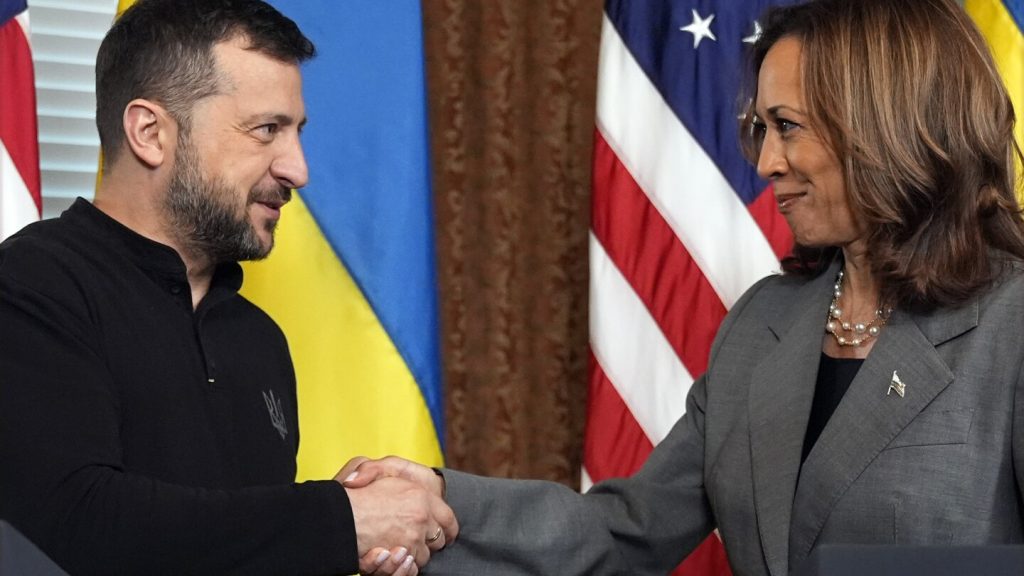Vice President Kamala Harris criticized suggestions that Ukraine should cede territory to Russia for the sake of peace, calling them “dangerous and unacceptable.” This statement came as she stood alongside Ukrainian President Volodymyr Zelenskyy and indirectly criticized Republican candidate Donald Trump’s approach to the conflict. Trump has praised Russian President Vladimir Putin and faulted Zelenskyy for ongoing bloodshed, but he rejected Harris’ criticisms, emphasizing his desire to end the conflict. The tensions between the U.S. and Ukraine were highlighted as Trump announced a meeting with Zelenskyy in New York, following days of uncertainty about whether the two leaders would sit down together.
The public disclosure of a purported message from Zelenskyy to Trump, which suggested a need for understanding between the two leaders, underscored the strained relationship between them. Harris, on the other hand, emphasized the importance of supporting Ukraine in its defense against Russian aggression, highlighting the U.S.’ strategic interest in the region. While Zelenskyy presented plans for improving Ukraine’s military capabilities and negotiating position during his visit to Washington, there was no immediate movement on the issue of lifting restrictions on long-range Western weapons. However, President Joe Biden announced additional military support for Ukraine, including missiles and drones, to bolster its defenses.
The bipartisan support for Ukraine within the U.S. has become divided along partisan lines, with Democrats more likely to view assistance to Ukraine as a responsibility compared to Republicans. The upcoming 2024 election has added a political dimension to discussions around Ukraine, with conflicting views on which presidential candidate would handle the situation better. Zelenskyy received support from both Democrats and Republicans during his visit to Capitol Hill, with some legislators advocating for the provision of long-range weapons to increase Ukraine’s leverage in negotiations with Russia. However, there are concerns that Trump’s approach to the conflict could jeopardize Ukraine’s security and enable Putin to make further gains on the battlefield.
The tensions between Zelenskyy and Trump were further exacerbated by recent statements and actions. Zelenskyy criticized Trump’s running mate, JD Vance, and dismissed Trump’s claims of being able to quickly negotiate a solution to the conflict. Trump, on the other hand, accused Zelenskyy of making “nasty aspersions” towards him and questioned the effectiveness of U.S. support for Ukraine. There are fears that a potential return of Trump to the White House could lead to changes in U.S. military assistance to Ukraine, with implications for the ongoing conflict. Experts emphasize the importance of providing sufficient support to Ukraine to resist Russian aggression, while also advocating for a negotiated end to the war that does not sacrifice Ukraine’s interests.
In conclusion, the U.S.’ relationship with Ukraine and its response to the conflict with Russia have become politicized ahead of the 2024 election. While bipartisan support for Ukraine continues to exist, there are divisions in how different political parties view the situation and the best approach to handling it. Zelenskyy’s visit to Washington highlighted the challenges faced by Ukraine in navigating its relationship with the U.S. and the potential impacts of changes in leadership on its security. As the conflict continues, the role of the U.S. in supporting Ukraine and maintaining stability in the region remains a critical issue for policymakers and the American public.


